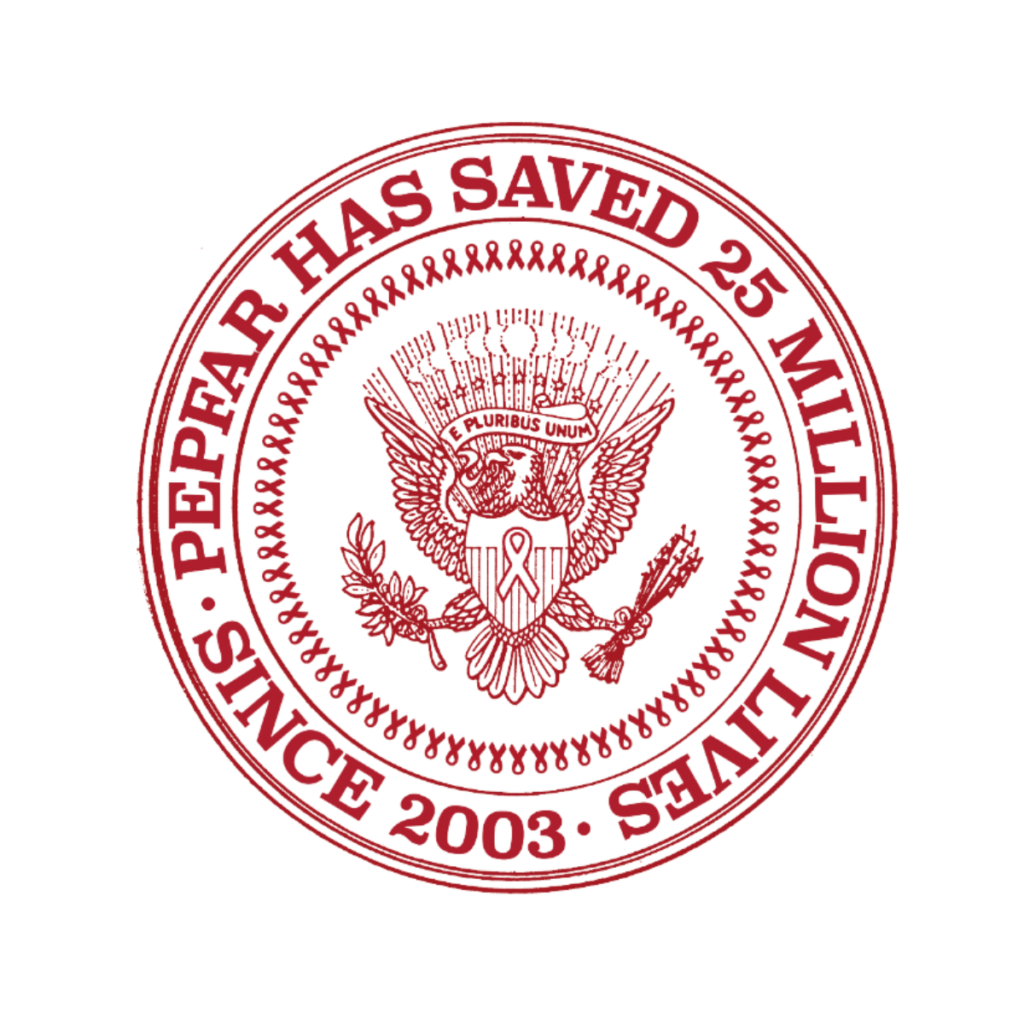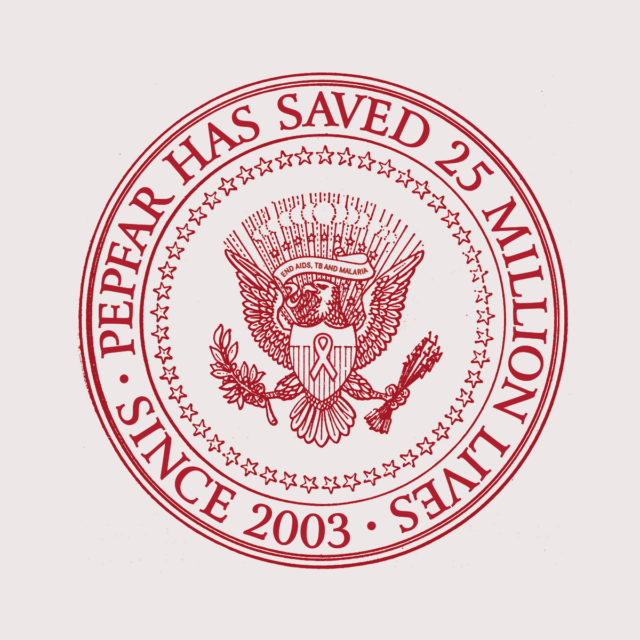On World AIDS Day, we celebrate the tens of millions of lives saved by global health programs and recommit to our fight to end this preventable disease for everyone, everywhere.

HIV remains a global crisis – AIDS claimed a life every minute in 2022. But we have the tools to win this fight. Just look at the bipartisan program PEPFAR, the President’s Emergency Plan for AIDS Relief.
PEPFAR has helped save 25 million lives, provide more than 20 million people with life-saving antiretroviral treatment and ensure 5.5 million babies were born HIV-free.
PEPFAR’s success over the course of its first 20 years is astounding. But new results released by the program on World AIDS Day show how quickly those gains could be lost if the program is not able to continue its lifesaving work.
Assessing 12 high-disease-burden countries1, PEPFAR estimates that – from 2024-2030 – its projects will prevent:
- at least 5.2 million AIDS-related deaths
- 6.4 million new HIV infections (including 1 million new infections among children)
- More than 4 million children from being orphaned due to AIDS.
If PEPFAR was halted, AIDS-related deaths in those 12 countries are projected to increase rapidly by more than 400% by 2030. The number of children orphaned due to AIDS could double.
This is a fight we know we can win – if we recommit to programs and policies that work.
Tell Congress today: We need a clean, five-year reauthorization of PEPFAR so we can keep up the fight against HIV/AIDS.

Want to learn more about PEPFAR? Keep an eye on the ONE blog – this story is a part of our “PEPFAR at 20” series highlighting the program’s life-saving work while we fight for reauthorization in 2023!
- The 12 countries analyzed in the study are Cameroon, Eswatini, Kenya, Lesotho, Mozambique, Namibia, Nigeria, South Africa, Tanzania, Uganda, Zambia, and Zimbabwe ↩︎



